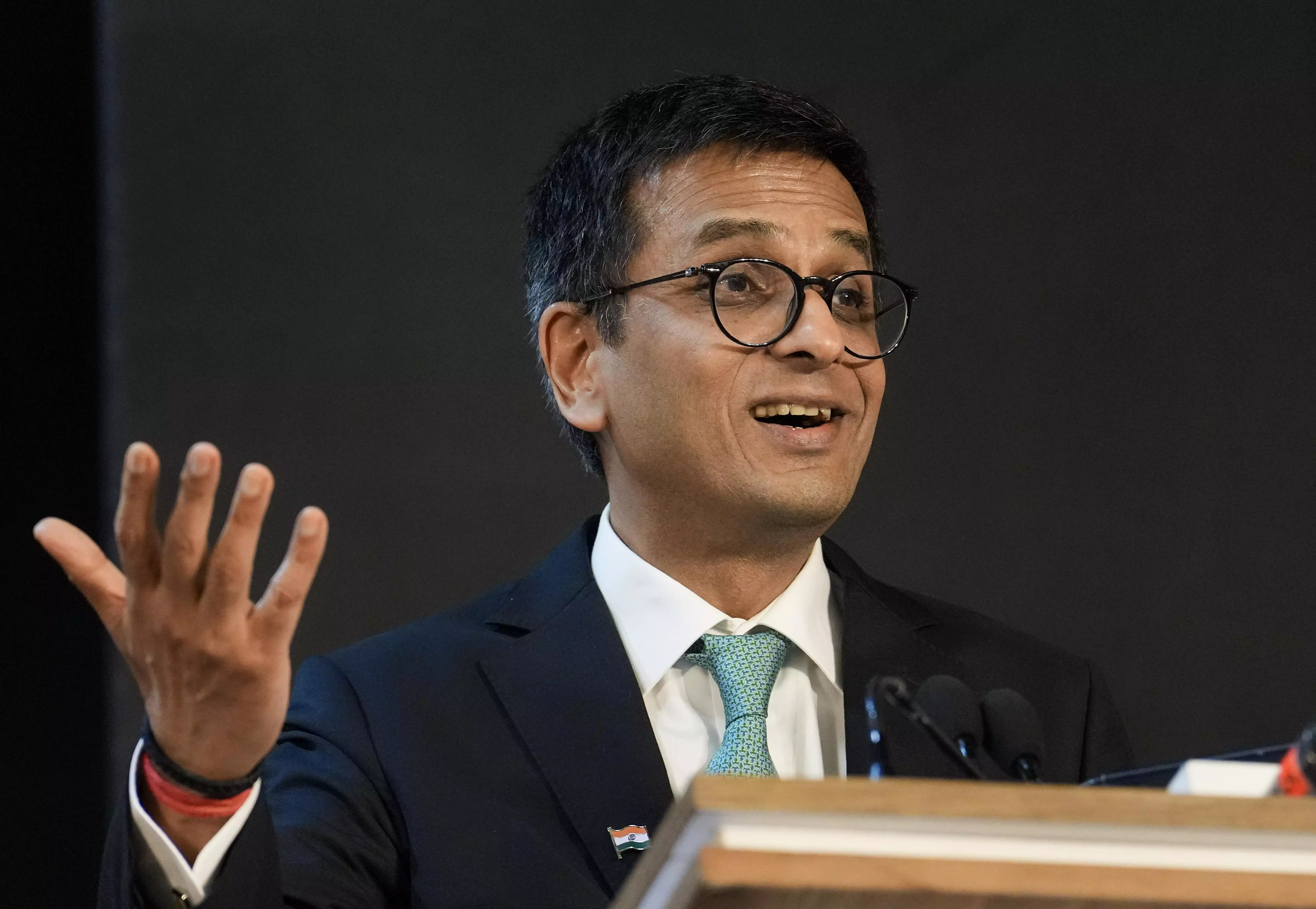
Surging markets | CJI advises SEBI, SAT to be cautious, pitches for more tribunal benches
SEBI and appellate fora like SAT assume "immense national importance" in fostering a stable and predictable investment environment, he said

Chief Justice of India DY Chandrachud on Thursday advised market regulator SEBI and the Securities Appellate Tribunal (SAT) to exercise caution amid a significant surge in equity markets and pitched for more tribunal benches to ensure that the "backbone is stable".
Inaugurating the new SAT premises in Mumbai, CJI Chandrachud pitched for authorities to consider opening up new benches of the SAT given the higher workloads because of higher quantum of transactions and newer regulations.
Referring to newspaper articles calling the crossing of the 80,000 points milestone by the BSE as an ecstatic moment, where India is entering a "stratospheric domain", the CJI pointed out that such events emphasise the need for regulatory authorities to ensure that everyone holds their "balance and nerves" amid the wins.
Greater responsibility
"The more you see the surge in the stock market, the greater the role, I believe, for SEBI and SAT, as institutions which will exercise caution, celebrate the successes but at the same time, ensure that the backbone is stable," the CJI said.
He added that SEBI and appellate fora like SAT assume "immense national importance" in fostering a stable and predictable investment environment, and explained how this can benefit in economic growth for the country.
"When investors feel assured that their investments are protected by law and that there are effective mechanisms for dispute resolution, they are more likely to invest in the country's markets. This influx of investment can lead to better economic outcomes such as increased capital formation, job creation and overall economic growth," the CJI said.
The role of SAT in the "dog eat dog" world of finance is that of a referee in ensuring that everybody plays by the rules, he said, stressing on the need to be updated by keeping pace with new developments.
Rise in disputes
With the rapid growth in the number of market participants and transaction volumes, there is a likelihood of an increase in disputes and may be even instances of regulatory non-compliance, he said.
In addition, issues like market conduct and corporate governance have increased appeals filed with SAT "manifold", the CJI said, pitching for an early filling up of the vacancies at SAT to ensure that the tribunal functions effectively and at full capacity.
CJI Chandrachud, who called the event as a "homecoming" because he had appeared in the tribunal first as a lawyer, also pitched for more SAT benches pointing out that the statutes allows for it.
He later told reporters that creating additional benches is a "policy issue" and he has flagged the issue as the Chief Justice of India given the growth in the work. "It is an aspect which should be considered by those who have responsibility for taking these decisions," he said.
SAT's presiding officer Justice PS Dinesh Kumar said there are 1,028 pending appeals in the SAT and it has disposed of over 6,700 appeals since its inception in 1997.
Economic regulation
The CJI said timely actions and correction of aberrations is very important in the financial sphere, and cited a 5-bench judgement on a critical matter recently which came within a month of the original order as a case in point.
The CJI also shared the thinking during the selection of the SAT head recently to point out that there is a perception in the "highest level of government" that it is a key tribunal in terms of economic regulation.
"Therefore it is necessary to have a person who may not necessarily be someone who has practiced securities law or presided over securities cases but who has the basic and robust approach to regulation," he said.
He also launched a new website of the SAT on Thursday which has been created by the National Informatics Centre, and stressed on the need to devote adequate attention to the issue of technology.
With the advancements in the digital arena, there is a need to reimagine the concept of access to justice, he said.
(With agency inputs)

